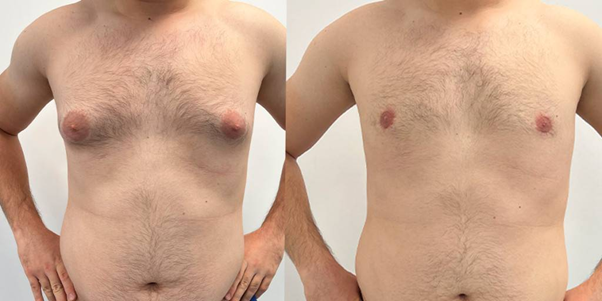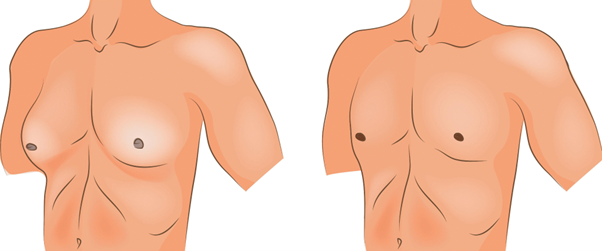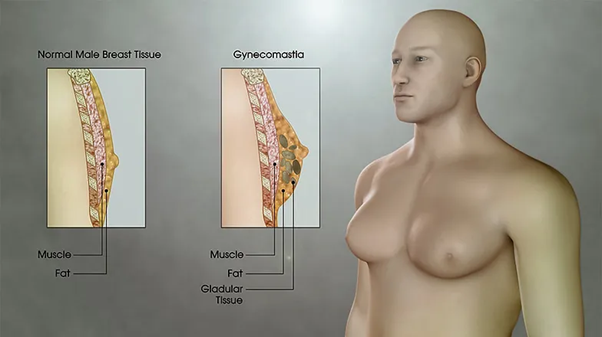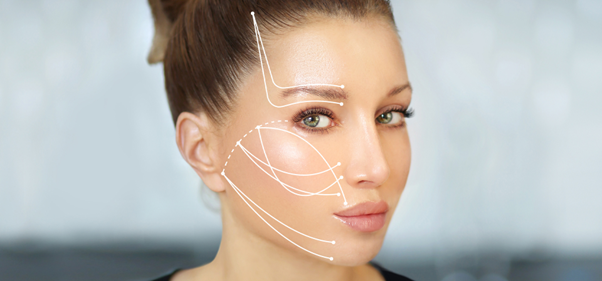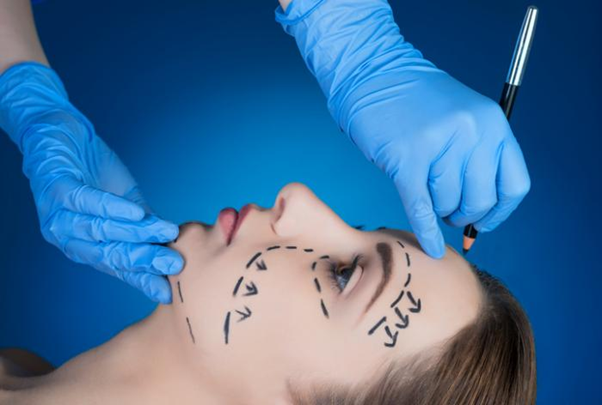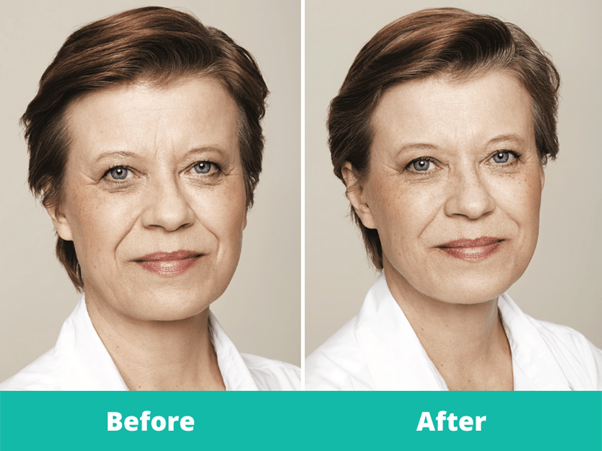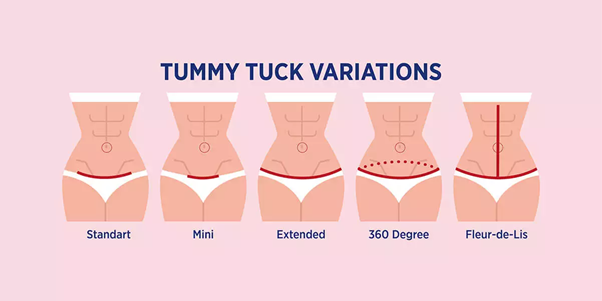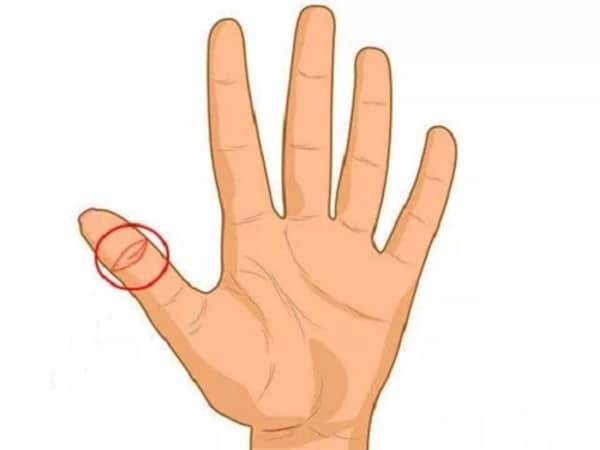Gynecomastia, a condition characterized by the enlargement of breast tissue in males, affects a significant number of men at different stages of life. Understanding the causes, symptoms, and available treatments is key to managing this condition effectively. In this article, we will explore the causes of gynecomastia, its impact on mental health, treatment options, and the role of cosmetic intervention.
Gynecomastia can lead to physical discomfort, emotional distress, and self-esteem issues, especially in social situations
What is Gynecomastia?
Gynecomastia is the medical term for the benign enlargement of male breast tissue. It differs from excess fat buildup, which can occur with weight gain; gynecomastia involves the growth of glandular tissue, leading to a more prominent chest. It can affect one or both breasts and may result in tenderness or sensitivity in the affected area.
Gynecomastia is most common during three life stages: infancy, adolescence, and older adulthood. During these times, hormonal changes can trigger breast tissue development, although the condition can also occur in otherwise healthy males without any known triggers.
Causes of Gynecomastia
The primary cause of gynecomastia is an imbalance between the hormones estrogen and testosterone. Several factors contribute to this hormonal imbalance, including:
- Hormonal Changes During Growth
Infancy and Adolescence: Newborns often have elevated estrogen levels passed from their mothers, which can cause temporary breast tissue growth. Similarly, teenage boys experience hormonal shifts during puberty that can cause breast development. In most cases, this is temporary and resolves as hormone levels stabilize.
Aging: As men age, testosterone production naturally declines, which can alter the hormone ratio and lead to gynecomastia. Older men may experience this condition due to decreased testosterone combined with a slight increase in body fat, which produces more estrogen.
Medications used to treat prostate issues can affect testosterone levels.
- Medications and Substance Use
Some medications can influence the levels of estrogen and testosterone in the body, leading to gynecomastia. Certain medications and substances can influence hormone levels and result in gynecomastia:
- Anti-androgens: Medications used to treat prostate issues can affect testosterone levels.
- Anabolic Steroids: Often used by athletes, anabolic steroids can be converted into estrogen, leading to breast tissue growth.
- Other Medications: Antidepressants, anti-anxiety medications, and drugs like digoxin can also impact hormone balance.
- Recreational Drugs: Alcohol, marijuana, and some recreational drugs may increase the risk of developing gynecomastia.
- Alcohol, marijuana, heroin, and certain other drugs can influence the balance of hormones, increasing the risk of gynecomastia.
- Medical Conditions
Some underlying medical conditions can result in hormonal imbalances that lead to gynecomastia. These include:
- Kidney or Liver Disease: The liver and kidneys play a crucial role in processing hormones, and disease in these organs can lead to hormonal disruptions.
- Hyperthyroidism: An overactive thyroid can produce too much of the hormone thyroxine, impacting overall hormone balance.
- Tumors: Certain tumors, particularly those affecting the testicles or adrenal glands, can produce hormones that contribute to gynecomastia.
- Lifestyle and Diet
Obesity is a risk factor, as excess body fat can convert testosterone into estrogen, increasing the chances of developing gynecomastia. Additionally, consuming foods with added hormones, phytoestrogens, or excessive alcohol can contribute to hormonal disruptions.
Gynecomastia arises when the ratio between these hormones is disrupted, leading to higher estrogen levels relative to testosterone.
Symptoms of Gynecomastia
The most apparent symptom of gynecomastia is the development of enlarged breasts. This may occur symmetrically or affect only one breast. Common symptoms include:
- Swelling of Breast Tissue: A noticeable increase in breast size, often with a firm texture compared to typical fat tissue.
- Tenderness or Sensitivity: The breast area may be tender or sensitive to touch, causing discomfort in activities such as wearing tight clothing or engaging in physical activities.
- Lumps Beneath the Nipple: A firm or rubbery lump may be felt beneath the nipple, sometimes causing pain.
Gynecomastia can lead to psychological symptoms as well, such as anxiety, depression, and reduced self-esteem. It may also cause men to avoid activities like swimming or exercising in public, affecting their quality of life.
Diagnosing Gynecomastia
- Medical History and Physical Examination: Your doctor will evaluate your health history, medication use, and lifestyle habits. They will also physically examine the breast tissue to determine whether it’s glandular tissue or fatty tissue.
- Blood Tests: Hormone levels may be checked to identify any imbalances, such as increased estrogen or decreased testosterone.
- Imaging Tests: In some cases, ultrasound or mammography is recommended to determine the type of tissue involved and rule out conditions such as breast cancer.
If you suspect you have gynecomastia, it is crucial to seek medical advice for a proper diagnosis
Treatment Options for Gynecomastia
The treatment for gynecomastia depends on the underlying cause, severity, and how much it affects your daily life. Here are some common approaches:
- Observation and Lifestyle Changes
- Watchful Waiting: In adolescents, gynecomastia often resolves on its own as hormones stabilize. In such cases, doctors may suggest a period of observation.
- Lifestyle Modifications: Addressing obesity, reducing alcohol consumption, and avoiding certain drugs and substances can help reduce breast tissue size. Maintaining a balanced diet and incorporating regular exercise can also positively impact hormone levels.
- Medications
Medications that adjust hormone levels are sometimes used in cases where gynecomastia is causing discomfort or is not resolving. Examples include:- Selective Estrogen Receptor Modulators (SERMs): Such as tamoxifen, which can block estrogen effects on breast tissue.
- Testosterone Therapy: In men with low testosterone levels, hormone therapy may be prescribed.
- Surgical Intervention
When gynecomastia is persistent or particularly bothersome, surgical options can provide significant relief:- Liposuction: This procedure removes excess fatty tissue from the breast. It’s ideal for men with pseudogynecomastia (fatty tissue enlargement).
- Mastectomy: A more involved procedure that removes glandular breast tissue. It may be performed endoscopically, resulting in minimal scarring and a relatively short recovery time.
Psychological impact and coping strategies
Gynecomastia can have a significant impact on a man’s psychological health. The emotional burden of dealing with a perceived “feminine” physical trait can cause anxiety, depression, and social withdrawal. Here are some effective strategies for coping with the psychological impact of gynecomastia:
-
Counseling
Seeking professional help from a therapist can be beneficial for coping with the emotional effects. Cognitive-behavioral therapy (CBT) can help manage anxiety and depression associated with gynecomastia.
-
Support Groups
Support groups offer a safe environment where individuals can share their experiences and concerns. Being part of a community facing similar challenges can provide comfort and reassurance.
-
Cosmetic Solutions
Wearing compression shirts can help flatten the chest area, making it less noticeable. This can offer comfort and improve confidence, especially during public activities like swimming or exercising.
The role of cosmetic procedures in treating Gynecomastia
For men seeking an effective and lasting solution to gynecomastia, cosmetic procedures can be life-changing. At DR.HARVARD, our experienced medical team offers advanced treatment options tailored to individual needs. We understand that every patient’s journey is unique, and our goal is to provide compassionate care, ensuring a natural, masculine chest contour that boosts confidence and quality of life.
With a focus on minimal scarring and quick recovery, we utilize the latest surgical techniques to deliver optimal results. If you’re ready to take the next step toward a more confident you, consider scheduling a consultation with DR.HARVARD today. Let us help you embrace the best version of yourself.


